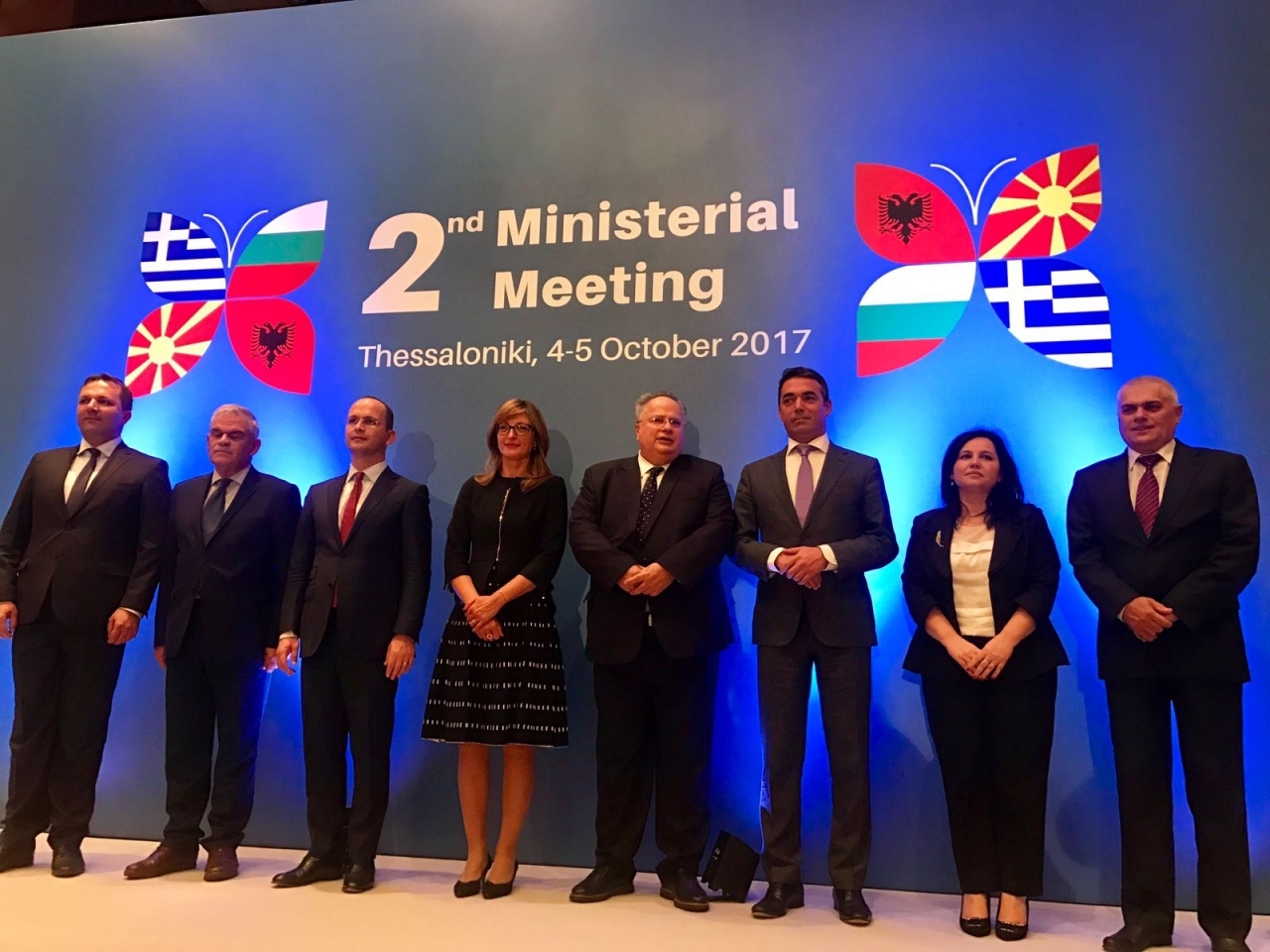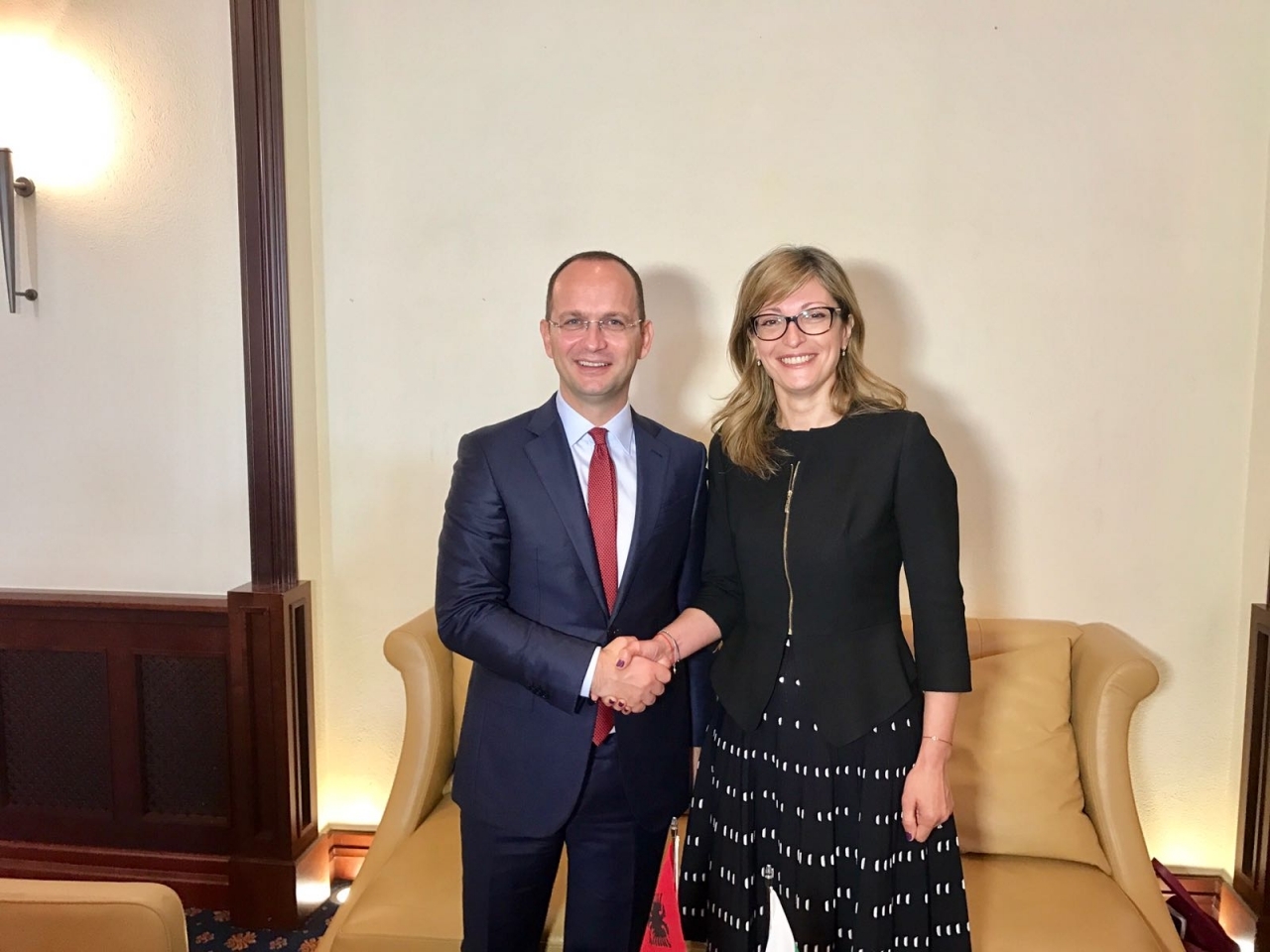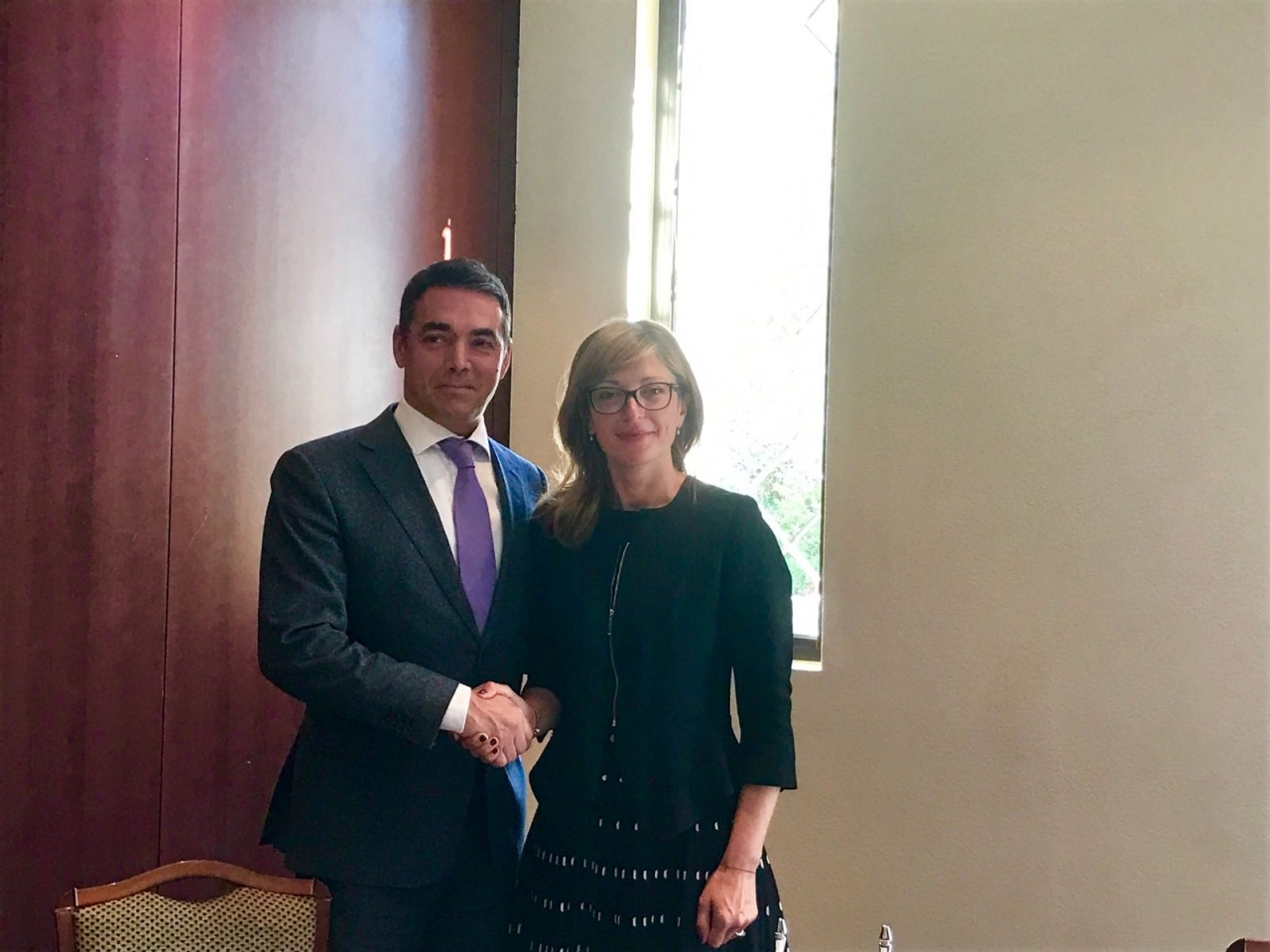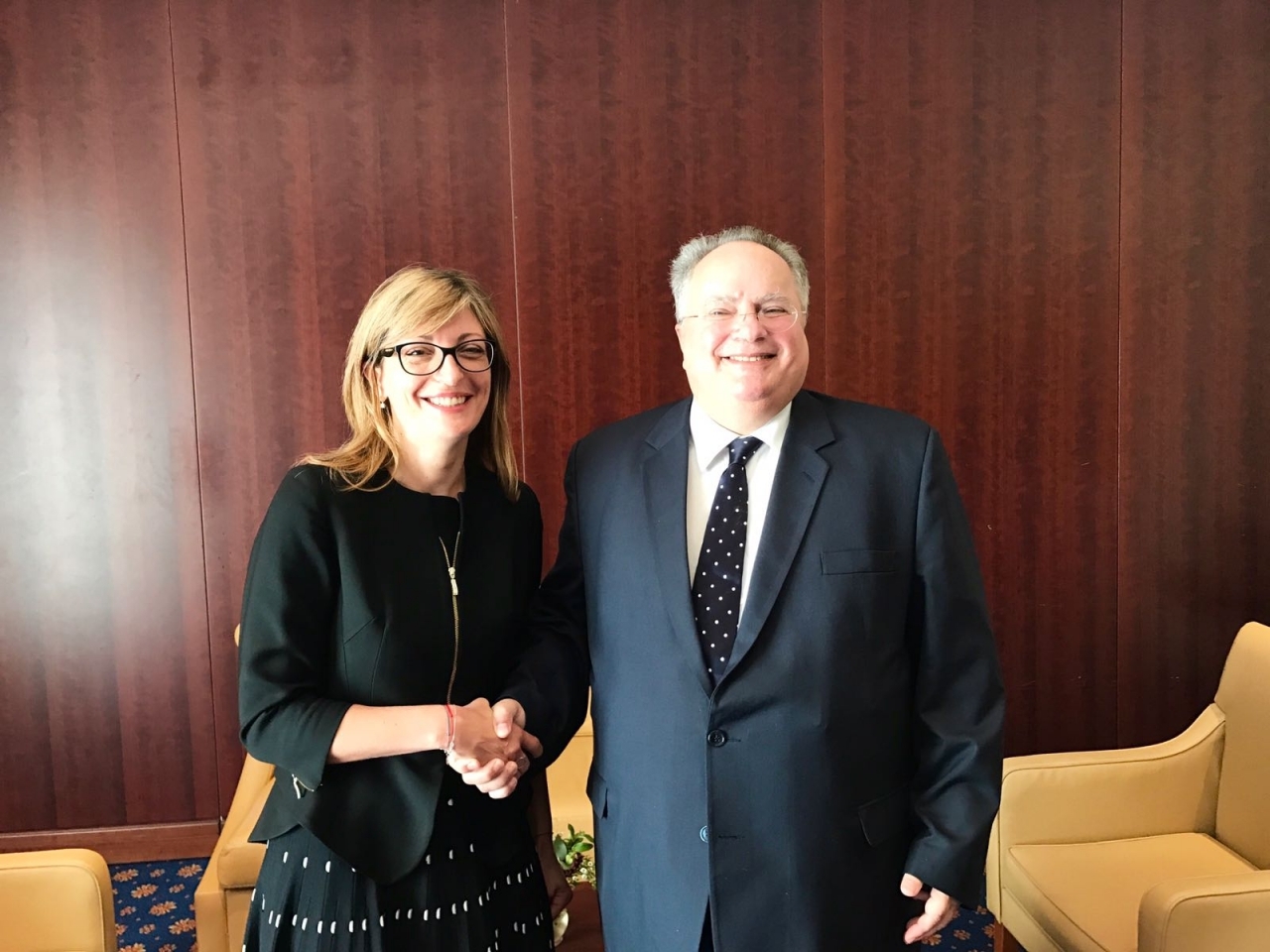Ekaterina Zaharieva takes part in a meeting of the foreign and interior ministers of Albania, Bulgaria, Greece and the Republic of Macedonia
05 October 2017 News
Deputy Prime Minister for Justice Reform and Foreign Minister Ekaterina Zaharieva took part in a working meeting with the foreign and interior ministers of Albania, Bulgaria, Greece and the Republic of Macedonia in Thessaloniki. The challenges before the security in the region, migration issues, the Schengen Area and the defence policy featured on the agenda of the discussions.
“We agreed to an interaction at all levels. This is the second such meeting and our wish is to gather together once or twice a year extending the form by including colleagues from other ministers as well. We mapped out the topics for the next such meeting: the cohesion policy, the future of the European Union and the budget. The valuable thing in these meetings is that we are all honest and open,” Minister Zaharieva commented after the meeting.
The Bulgarian Deputy Prime Minister had one-to-one bilateral meetings with the three countries’ top diplomats: Ditmir Bushati of Albania, Nikolaos Kotzias of Greece and Nikola Dimitrov of the Republic of Macedonia. The interlocutors discussed a number of questions of bilateral relations.
Before her Albanian counterpart, Minister Zaharieva raised for a consecutive time the issue of the official recognition of the Bulgarian minority in the country. “The Bulgarian Government wants to have guarantees that every citizen in Albania is free to identify himself/herself up to one’s personal discretion. I was informed that the procedure of recognition of the minority will take time and, once fulfilled, there will be no obstacles to its enforcement along with all rights set forth in their bill,” Zaharieva said after the meeting with Bushati. She recalled that the two countries prepared an accord for recognition of the Bulgarian minority in Albania already in 1932 but it was not signed because of the beginning of WWII.
The matter of the inclusion of the Bulgarians in the scope of the new Albanian Minority Protection Act was raised by Prime Minister Boyko Borissov in a telephone conversation with his Albanian counterpart Edi Rama Bulgaria on 28 September 2017. The Albanian Prime Minister undertook a commitment that Albania would not violate the interests of the Bulgarian minority. In July 2017, during her visit to Tirana, Minister Zaharieva was assured by President Ilir Meta that no one in Albania could be discriminated or be prevented from self-identifying himself/herself as Bulgarian.
Minister Zaharieva and Greek Foreign Minister Nikolaos Kotzias discussed again the idea that the top diplomats of Bulgaria, Romania, Greece and Croatia – the four EU member states in the region – visit the other six countries of the Western Balkans in order to give political support to their European integration. The ministers Zaharieva, Melescanu, Kotzias and Pejcinovic-Buric reached an agreement to this effect during a meeting within the 72nd session of the UN General Assembly in New York. Zaharieva and Kotzias discussed the issue of making a review of the progress of Albania, Bosnia and Herzegovina, Kosovo, the Republic of Macedonia, Serbia and Montenegro and offer them expert assistance in the pre-accession process.
The possibilities for closer cooperation between Sofia and Skopje, including strengthening of investments and connectivity, were discussed during a meeting of Zaharieva with Macedonian Foreign Minister Nikola Dimitrov. The organising of a business forum in Strumica at which the Bulgarian companies will be familiarised with the possibilities for business in Macedonia is at an advanced stage. Zaharieva and Dimitrov discussed the organizing of a meeting of the two countries' governments.
“We hope to be admitted to the Schengen Area as soon as possible,” Minister Zaharieva said in Thessaloniki in connection with the European Commission’s appeal to the Council to make Bulgaria and Romania full members of the Schengen Area.
“The passive access to the Schengen Information System granted to Bulgaria is highly important. I am very happy that the European Parliament has approved it. It is a very good sign for Bulgaria and Romania. All our partners say that we cope well with the protection of the Union’s external borders,” Zaharieva added.



